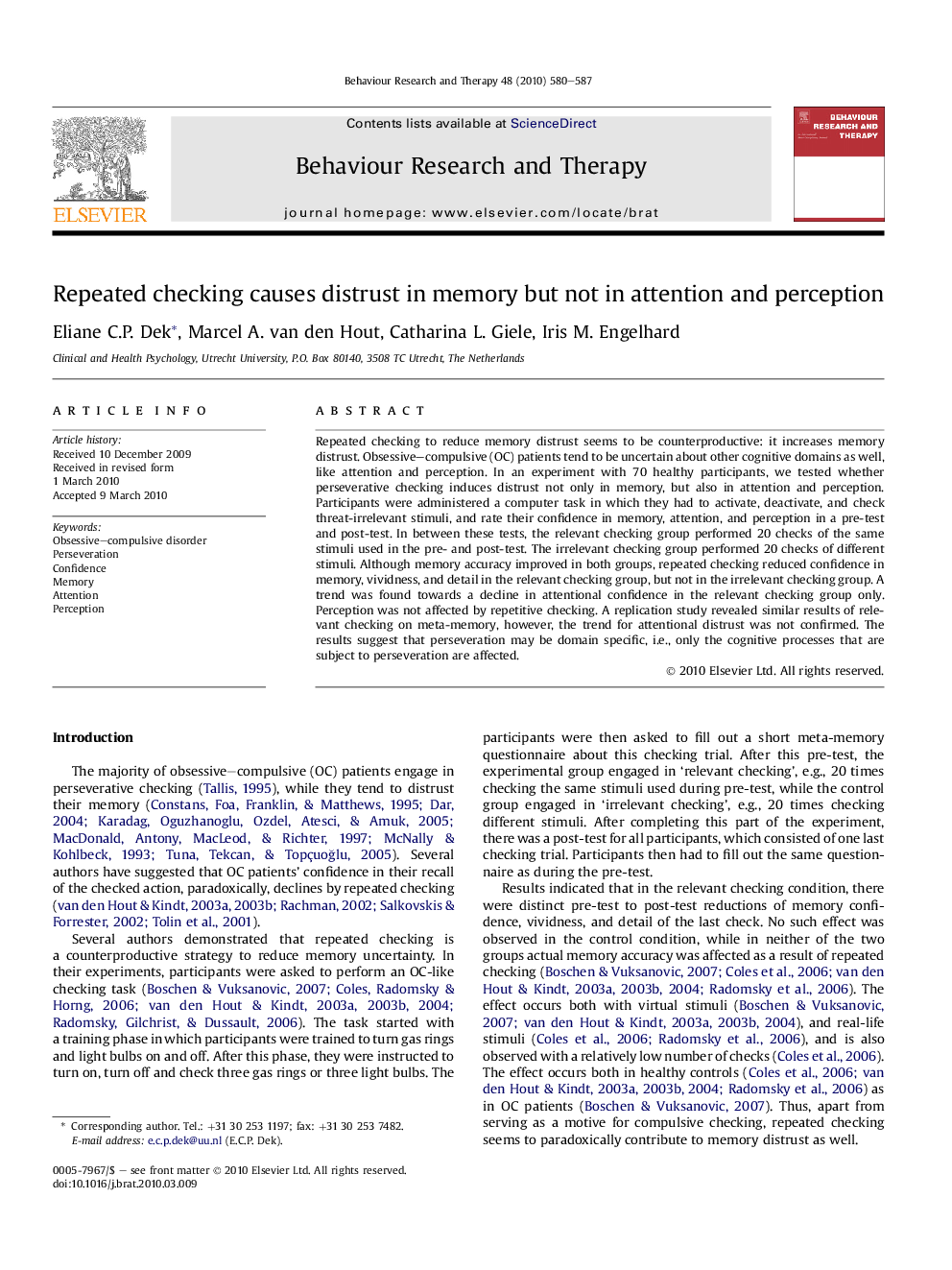| Article ID | Journal | Published Year | Pages | File Type |
|---|---|---|---|---|
| 902074 | Behaviour Research and Therapy | 2010 | 8 Pages |
Repeated checking to reduce memory distrust seems to be counterproductive: it increases memory distrust. Obsessive–compulsive (OC) patients tend to be uncertain about other cognitive domains as well, like attention and perception. In an experiment with 70 healthy participants, we tested whether perseverative checking induces distrust not only in memory, but also in attention and perception. Participants were administered a computer task in which they had to activate, deactivate, and check threat-irrelevant stimuli, and rate their confidence in memory, attention, and perception in a pre-test and post-test. In between these tests, the relevant checking group performed 20 checks of the same stimuli used in the pre- and post-test. The irrelevant checking group performed 20 checks of different stimuli. Although memory accuracy improved in both groups, repeated checking reduced confidence in memory, vividness, and detail in the relevant checking group, but not in the irrelevant checking group. A trend was found towards a decline in attentional confidence in the relevant checking group only. Perception was not affected by repetitive checking. A replication study revealed similar results of relevant checking on meta-memory, however, the trend for attentional distrust was not confirmed. The results suggest that perseveration may be domain specific, i.e., only the cognitive processes that are subject to perseveration are affected.
